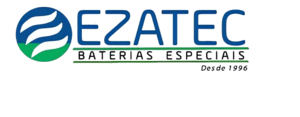Luis Gabriel Alves Rodrigues
THÈSE
Pour obtenir le grade de
DOCTEUR DE LA COMMUNAUTE
UNIVERSITE GRENOBLE ALPES
Spécialité : Génie Electrique
Abstract
Classically, the energy conversion architecture found in photovoltaic (PV)
power plants includes solar arrays delivering a maximum voltage of 1kV followed
by a step-up chopper connected to a three-phase Voltage Source Inverter. This
multistage conversion system (DC/DC + DC/AC) is then connected to the
medium-voltage grid through a low-voltage/medium-voltage transformer. In order
to simplify the PV systems, this research work focuses on the study and
implementation of a DC/AC topology employing a single power processing stage:
the three-phase Current Source Inverter (CSI). To deal with the inconvenient of
high conduction losses when implementing this topology, wide-bandgap Silicon
Carbide (SiC) semiconductors are used, allowing to efficiently convert energy
while keeping a relatively high switching frequency. Nonetheless, since the
available power semiconductor modules on the market are not compatible with
the CSI, a novel 1.7kV SiC-based voltage bidirectional module is developed in the
context of this thesis. Hence, the dynamic characterization of the new SiC device
is carried out and serves as the basis for the design of a 60kW CSI prototype.
Finally, the inverter efficiency is evaluated at nominal operating conditions,
employing both a calorimetric and electrical methods. The obtained results
confirm the CSI ability to operate efficiently at high switching frequencies
(η>98.5% @60kHz). The originality of this work lies mainly in the design,
characterization and implementation of the new 1.7kV full-SiC power module
adapted to the CSI topology.
Keywords: Power electronics, DC/AC converters, Current Source Inverter (CSI),
Silicon Carbide (SiC), Photovoltaics, Power module.
VIEW FULL TEXT: https://theses.hal.science/tel-02476261v1/document

.gif)












Nenhum comentário:
Postar um comentário